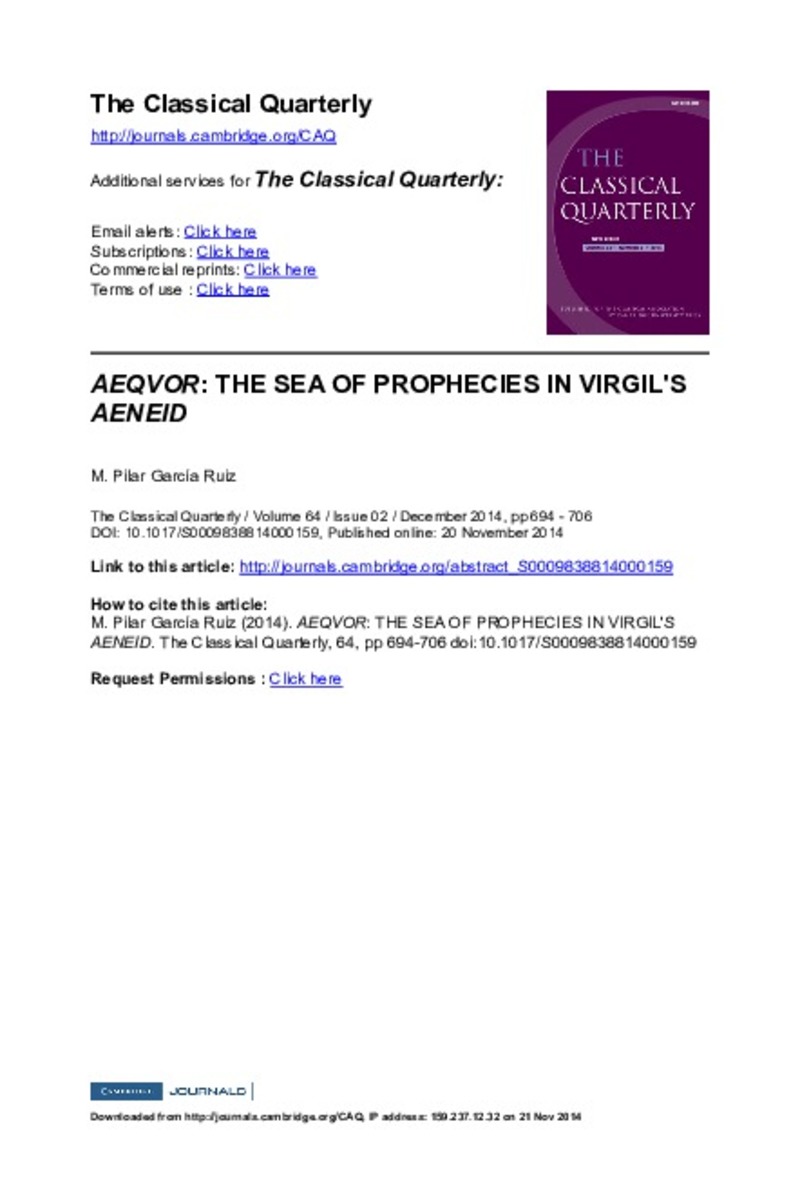Full metadata record
| DC Field | Value | Language |
|---|---|---|
| dc.creator | García-Ruiz, M.P. (María Pilar) | - |
| dc.date.accessioned | 2014-11-21T09:15:02Z | - |
| dc.date.available | 2014-11-21T09:15:02Z | - |
| dc.date.issued | 2014 | - |
| dc.identifier.citation | M. Pilar García Ruiz (2014). AEQVOR: THE SEA OF PROPHECIES IN VIRGIL'S AENEID. The Classical Quarterly, 64, pp 694-706 doi:10.1017/S0009838814000159 | es_ES |
| dc.identifier.uri | https://hdl.handle.net/10171/37073 | - |
| dc.description.abstract | In a well-known article, Hodnett pointed out that Virgil emphasizes the peacefulness and quiet of the sea, its immensity and limitlessness, in contrast to the view articulated by the Roman poets of the Republic, which presents the sea as deceptive and fearsome. Among the many terms used in the Aeneid to denote the sea, aequor stands out precisely because it is the term most frequently used by Virgil in place of the word mare. | es_ES |
| dc.language.iso | eng | es_ES |
| dc.publisher | Cambridge University Press | es_ES |
| dc.rights | info:eu-repo/semantics/openAccess | * |
| dc.subject | Virgil | es_ES |
| dc.subject | Aeneid | es_ES |
| dc.subject | Aequor | es_ES |
| dc.subject | Aeneas | es_ES |
| dc.subject | Materias Investigacion::Filología y Literatura::Filología clásica | es_ES |
| dc.title | Aeqvor: the sea of prophecies in Virgil's Aeneid | es_ES |
| dc.type | info:eu-repo/semantics/article | es_ES |
| dc.relation.publisherversion | http://journals.cambridge.org/abstract_S0009838814000159 | es_ES |
Files in This Item:
Statistics and impact
Items in Dadun are protected by copyright, with all rights reserved, unless otherwise indicated.






